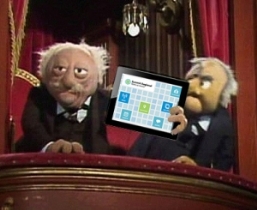 The more than 76 million baby boomers in the US are a ripe market for companies building digital health devices and services, but few such companies have successfully designed their offerings for the demographic. That's one of the preliminary conclusions of a recently published California HealthCare Foundation report called Baby Steps: Will Boomers Buy into Mobile Health?, written by Laurie Orlov, the foremost expert on aging in place technologies.
The more than 76 million baby boomers in the US are a ripe market for companies building digital health devices and services, but few such companies have successfully designed their offerings for the demographic. That's one of the preliminary conclusions of a recently published California HealthCare Foundation report called Baby Steps: Will Boomers Buy into Mobile Health?, written by Laurie Orlov, the foremost expert on aging in place technologies.
While many of the metrics surrounding the baby boomer demographic are staggering, here are just two of the ones Orlov points to in her report: Boomers will control 70 percent of the United States' disposable income by 2017 and by 2030 more than 30 million boomers are expected to be managing more than one chronic health condition.
"Baby boomers are poised to bring on a wave of health costs, and inventors are eager to find ways to meet their needs, ultimately averting unneeded medical services and expense," Orlov writes in the report's conclusion. "The experts interviewed for this report acknowledged that the fitness wearable market is still in its infancy. It is too early to determine if providers are willing to accommodate data that can now be transmitted to them. Further, smartphone apps to monitor calories and tricorder technologies to measure vital signs produce data that will eventually need to augment established patient data. Electronic health records are not yet portable between physicians who are based in separate medical practices. And expansion of access, subsidized cost of insurance, or doctor availability may stymie care of lower income boomers, leaving the ER as their only ready access to care."
Orlov and the dozen or so industry experts who are interviewed for the report offer up a number of predictions and suggestions to the industry that would help light the fuse of adoption among boomers.
For starters, designers will create digital health apps and gadgets that are better suited to boomers and not developed solely with young people in mind. The report predicts that governments will further incentivize adoption of digital health among boomers thanks to increased reimbursement for the services. Increasingly, connected health "devices will be pre-configured, loaded with data, and delivered to the most vulnerable", according to Orlov. The report also predicts that smart watches will emerge as a winning form factor, replacing clip-on wearables. Finally, predictive analytics will mature and prove to both improve care and reduce costs by helping providers and patients alike identify medical issues earlier.

















